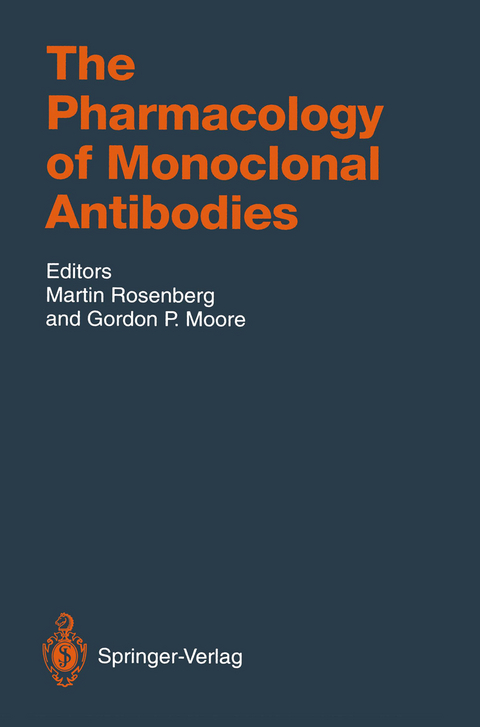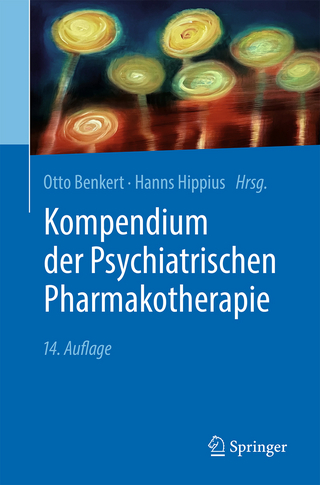
The Pharmacology of Monoclonal Antibodies
Springer Berlin (Verlag)
978-3-642-78434-7 (ISBN)
Section I: Human Monoclonal Antibodies.- 1 Human Monoclonal Antibody Technology.- 2 Recombinant Therapeutic Human Monoclonal Antibodies.- 3 Transgenic Approaches to Human Monoclonal Antibodies.- Section II: Genetically Engineered Monoclonal Antibodies.- 4 Humanization of Monoclonal Antibodies.- 5 Applications for Escherichia coli-Derived Humanized Fab' Fragments: Efficient Construction of Bispecific Antibodies.- Section III: MAb Conjugates and Fusions.- 6 Immunotoxins.- 7 Antibody-Enzyme Fusion Proteins and Bispecific Antibodies.- 8 Three Generations of Recombinant CD4 Molecules as Anti-HIV Reagents.- Section IV: Combinatorial Libraries.- 9 Chemical and Biological Approaches to Catalytic Antibodies.- 10 The Combinatorial Approach to Human Antibodies.- Section V: Expression of MAbs/MAb Fragments.- 11 Antibodies from Escherichia coli.- 12 Structure, Function and Uses of Antibodies from Transgenic Plants and Animals.- 13 Some Aspects of Monoclonal Antibody Production.- Section VI: Medical Applications.- 14 Prospects for Cancer Imaging and Therapy with Radioimmunoconjugates.- 15 Clinical Experience with Murine, Human and Genetically Engineered Monoclonal Antibodies.- 16 Anti-idiotypic Monoclonal Antibodies: Novel Approach to Immunotherapy.
| Erscheint lt. Verlag | 22.1.2012 |
|---|---|
| Reihe/Serie | Handbook of Experimental Pharmacology |
| Co-Autor | R. Balint, C.F. Barbas, R.D. Blumenthal, P. Carter, M. Chatterjee, Y.-C.Jack Chen, R.M. Conry, K.A. Foon, D.M. Goldenberg, E. Haber, M. Hein, A. Hiatt, K. James, K.D. Janda, K. Karjalainen, H. Kohler, J.W. Larrick, A.F. LoBuglio, N. Lonberg, G.E. Mark, E.A. Padlan, S.H. Pincus, A. Plückthun, M.L. Rodrigues, R.G. Rupp, M.N. Saleh, M.R. Shalaby, R.M. Sharkey, A. Traunecker |
| Zusatzinfo | XXI, 406 p. |
| Verlagsort | Berlin |
| Sprache | englisch |
| Maße | 155 x 235 mm |
| Gewicht | 656 g |
| Themenwelt | Medizin / Pharmazie ► Medizinische Fachgebiete ► Pharmakologie / Pharmakotherapie |
| Medizin / Pharmazie ► Pharmazie | |
| Schlagworte | Combinatorial Cloning • Klonung • monoclonal antibodies • Monoklonaler Antikörper • Polymerase chain reaction |
| ISBN-10 | 3-642-78434-8 / 3642784348 |
| ISBN-13 | 978-3-642-78434-7 / 9783642784347 |
| Zustand | Neuware |
| Haben Sie eine Frage zum Produkt? |
aus dem Bereich


